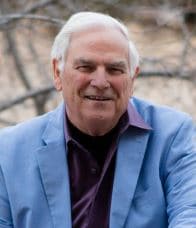by Robert M. Traynor, Ed.D
As clinicians move about the clinic working for another practice as an employee, they make observations. As time goes on, envy often sets in as the practice owner seems to be his or her own boss able to manage their own schedule. The practice owner seems to have more than the usual 2 weeks’ vacations and finds get away days, leaving the employees to work in their place.
The employees just know that the practice owner has a much higher salary than the employees. They do not feel that the practice has the appropriate schedules, takes the correct insurance, uses the best products, has the correct equipment to offer the clinical procedures. They (the owner) drive a much nicer car and a better house reinforcing the belief that they have a higher salary.
The facts are that these perceptions may be total myths, or the employee might just be correct.
Being Your Own Boss: Is There Such a Thing?
On the surface, the idea of “being your own boss” in a business seems reasonable. In an ideal world, being your own boss would mean there is no one to tell you what to do, when to do it, how to do it, or if you should do it.
Practice owners, however, do not live in an ideal world and “being your own boss” is a myth since a business owner has many “bosses” and an Audiology practice owner is no exception.
In an Audiology clinic, foremost among them are the patients, to whom the practitioner has a fiduciary responsible to not only provide services, products, and follow up the products with warranty service, but also to stay in business.
Practice owners are also responsible to the patients for all other administrative issues, such as keeping malpractice insurance, timely return of product deposits, maintaining the competence and certification of not only themselves, but their employees, what types of insurance to accept, keeping the equipment calibrated, and they are totally responsible for virtually everything else that goes with the provisions of high-quality services and products.
Many “Bosses” to Keep Happy
Of course, it is obvious that the patients are a type of “boss”, but practice’s valuable referral sources are another “boss” requiring constant maintenance. Competition for referral sources in the marketplace stresses the importance to turn reports around promptly, keep communications constant, and reinforce the referral sources expertise to their patients routinely.
A private practice proverb is that, “If you take good care of your patients and referral sources, they will take good care of you.”
If the practice has a bank loan, it must be paid no matter if there is business or not, so another “boss” are bankers or the investors in the practice. Since bank has put up funding for the clinic, bankers and those to whom long term or short-term loans are owed have a vested interest in the success or failure of the business. Their main goal is to receive a good return on their investment and their interests may not be the same as the practice goals. While the clinic’s goals are to provide the highest quality audiological services and product, these people simply want to be paid and make a profit.
Often the first to observe success or predict failure of the business is the practice accountant. As those that monitor the books and the success or failure of the methods, procedures, dispensing products, and other routine business practices, it is a wise practice owner that listens carefully to their accountant. Their recommendations may involve changes in the provision of specific products and services, pricing, tax issues, or other business modifications that are essential to the financial stability of the practice, all of which make the accountant another “boss.”
Even the most ethical and conscientious Audiology practices are plagued with legal issues from time to time. Legal issues such as business structure, leasing space, equipment, employee issues, collections, difficult patients, and taxes can create situations where the practitioner must conduct business as indicated by their attorney. The prudent practice owner will follow the advice of their attorney in all legal issues, which makes them another “boss”.
In a patient-centric practice, we work for our patients first and foremost, and if we do a good job with our patients, then usually the other “bosses” will be served as well. Thus, the concept of “being your own boss” is not true in that the Audiology practice owner has many bosses, all of whom are extremely important to keep satisfied for a practice to succeed.
Being your own boss is a myth!
Taking Time Off
It is good (and necessary) to have time off to relax, forget those problem patients, the employee’s problems, or the frustrations of paying the month’s expenses.
While employees may see that the owner is always gone working on various issues relative to the practice and some recreational get-a-ways, they may not be seeing the whole picture. If the practice was successful and the owner was solo, there would be no time for these meetings and to relax as they would be totally scheduled. In a solo practice, another business proverb applies, “when the clinician is away and only the front office is present, there is no income”.
Unless the practitioner has additional employees that can keep the doors open and see patients in their absence, time off must be scheduled around the clinic schedule and other low-pressure times, such as holiday periods or when business is usually slow (i.e. summer in Arizona or snow days in the north).
Even in a practice that has good clerical employees and colleague clinicians, it is difficult to get away for much longer than a week without frustrating situations arising. These difficulties can sometimes be devastating to the practice, so it is best to err on the side of caution and be careful about absences whether they be elected vacations, or necessary emergencies.
As in other businesses, an Audiology practice requires that the owner be available most of the time for business and clinical decisions that are required each day. Often well-meaning employees may make decisions that they feel are in the best interest of the clinic, but these could be inaccurate based upon the full knowledge of clinic operations and plans for the future.
The business world is unforgiving, and an absent proprietor or CEO will be punished severely by the marketplace. Getting more time off is also a myth.
Getting a High Salary
 The typical reaction, given the costs of services and products, is to perceive that these sums of money taken into the practice should generate enough income to increase compensation to the employees and the owner.
The typical reaction, given the costs of services and products, is to perceive that these sums of money taken into the practice should generate enough income to increase compensation to the employees and the owner.
The practice owner’s salary is determined by many things, but mostly by the amount of business conducted and the controlling of costs. When business is good, cash flow is created and, it is the cash flow as well as the control of fixed and avoidable costs that facilitate the salary level of not only the practice owner but virtually all employees.
In a new practice, it could very well be that the generation of income will be significant and, accordingly, the salary and benefits will be very high. Realistically, however, a new Audiology practice will generally not generate much initial cash flow and, subsequently not much income for the practitioner and/or employees until the business is established in the marketplace.
Cash flow is limited and as expenses such as rent, utilities, telephone, employees, and payroll taxes need to be paid first, it is not unusual that the owner’s salary begins at a lower level than they experienced when working as an employee elsewhere.
Another of the old private practice proverbs is that, “The owner is always paid last.”
After a period of time, it may be possible for the clinic to generate a greater cash flow, meeting all the expenses; then (and only then) salary and benefit increases can be considered for the owner. Entry into private practice does not ensure a higher salary and/or benefits, particularly in the beginning. The survival of the business is foremost and takes priority over how much the practice owner will be compensated.
Obtaining a high salary is usually a myth in the beginning but may become a reality as the practice matures.
Setting the Rules of the Practice
Clinicians who have worked for others have often found themselves feeling that they could manage the clinic better than their boss. In their opinion, the clinic should have different hours of operation, better/newer equipment, more or less procedures, less paperwork, use better (or different) products to facilitate rehabilitation, more precise evaluative protocols, higher or lower prices, better credit terms, higher or lower standards of clinical attire, better benefit packages, better policies, and/or various other issues that, in their opinion, should be managed differently.
Although these management modifications in policies and procedures seem perfectly reasonable to the employees from their perspective, once they realize the rationales for the positions taken by their employer, they often arrive at the same or similar decisions they criticized as employees.
Thus, owning a practice to be able to change the management technique, policies, and procedures could be either a truth or a myth.
Perks from Product Manufacturers
 Obtaining “benefits” from manufacturers of hearing instruments has been a very controversial issue almost since the beginning of when audiologists first started to dispense hearing aids in the late 1970s. For example, perks may be earned by selling a specific number of devices of a manufacturer’s product that qualify a practice (and the practice owner) for trips to exotic places, new equipment, low interest loans, special cash accounts, and other benefits provided with no out of pocket expense.
Obtaining “benefits” from manufacturers of hearing instruments has been a very controversial issue almost since the beginning of when audiologists first started to dispense hearing aids in the late 1970s. For example, perks may be earned by selling a specific number of devices of a manufacturer’s product that qualify a practice (and the practice owner) for trips to exotic places, new equipment, low interest loans, special cash accounts, and other benefits provided with no out of pocket expense.
Although these benefits may be considered a normal part of conducting business by manufacturers of most products, audiological recommendations for hearing devices involve a special fiduciary trust relationship.
Over the years, ethical practice boards for both national and state audiology organizations have found on numerous occasions that obtaining these benefits are unethical, ruling that these “gifts or benefits” could (and do) influence the clinician’s choice of hearing instruments chosen for their patients.
The ethical concern is that a practice manager in need of a few more units to pay for the trip to Europe, that ABR unit, or this month’s payment on their business loan, might possibly compromise patient care recommending instruments that count toward the trip when the patient would be better served by another manufacturer’s product.
Of course, most audiologists are ethical and would not let patient product choices be influenced by these perks. It is, however, considered unethical practice nonetheless by the American Academy of Audiology, American Speech Language Association, the Academy of Doctors of Audiology, and many state licensure boards.
Owning a practice for the “benefits” offered by manufacturers is most likely a myth unless you are willing to compromise ethical standards.
So….. employees need to realize that many of the issues they feel about their “bosses” may not necessarily be issues, simply circumstances and situations that may be beyond their control.
Reference:
- Traynor, R. (2018). Management and Economics: Implications for Audiology Practice. In R. Glaser & R. Traynor, Strategic Practice Management, 3rd Edition, San Diego: Plural Publishing.
 Robert M. Traynor, Ed.D., MBA, FNAP has been a clinician, academic, and practice manager for over 45 years. He has lectured on most aspects of the field of Audiology in over 40 countries. Dr. Traynor is the Editor of Hearing International at HHTM and has numerous publications in professional and trade journals and is the co-author of Strategic Practice Management, 3rd Edition, a text used in many universities to train audiologists in practice management. Check out his website at roberttraynor.com
Robert M. Traynor, Ed.D., MBA, FNAP has been a clinician, academic, and practice manager for over 45 years. He has lectured on most aspects of the field of Audiology in over 40 countries. Dr. Traynor is the Editor of Hearing International at HHTM and has numerous publications in professional and trade journals and is the co-author of Strategic Practice Management, 3rd Edition, a text used in many universities to train audiologists in practice management. Check out his website at roberttraynor.com









Largely true but not relevant to the shaping of a private practice. Does open up the awareness that the boss needs as a retention tool for fluctuating market situations.
No more can the practice owner rely on the hearing aid manufacturers to help with explaining technology changes and benefits of one hearing aid over another. Manufacturers are too selfish these days and technology cannot be relied upon to solve patient issues.
I have owned my practice for 37 years, and I can say that Robert hit a homerun with his article! There is no point with which I would disagree. Thank you for this and for all the books and articles you have published on practice ownership.
I would add a couple of other items: 1) As an owner, there is also a constant sense of responsibility for taking care of your staff. It goes beyond work. It reaches into the realm of their families too. Because, if the owner is not successful, not only will their patients be affected, but your staff AND their families will be affected too. Also, if the work environment is not pleasant and cohesive, bad attitudes can spill over to home life — and, that’s not good. 2) While employees are pretty much guaranteed their monthly income, an owner is not. There is a natural ebb and flow to businesses where some months income is high and some months income is low. If a business comes up short at the end of a month, guess who’s income changes — not the staff’s. 3) I have heard many believe that practice owners have to work 80 hours per week. Well, some do! But remember, an owner has the choice of telling the receptionist what time to start patients and what time to have the last patient be finished. 4) As someone who has lived above my means and below my means, I can painfully recommend doing the latter. Because of the ebb and flow of business, my suggestion to practice owners, especially new ones, is to become debt free ASAP and create a lifestyle based on the low ebb of your business. 5) Some business owners allow their businesses to run their lives. This does not have to be the case. For me, I have learned to use my practice as a tool that enables me to have a successful professional career and a wonderful family life! The key is — Balance! However you decide to run your practice, I wish you all the greatest success — practice ownership is fantastic!
Larry:
Thanks for your comments as these are great additions to post. Life and work is, indeed, a balance not only for the practitioners but also for the staff. Calling the shots is what practice ownership is all about, my point was that it likely will not happen overnight. I am sure you will agree that successful practice is lots of hard work, but it’s the hardest work you will ever love!
Anjan:
My point with this post is that what employee colleagues do not see IS the rise and fall of the market and that if they begin a practice they might not get the benefits of practice ownership right away. If they work hard and put their muscle into the business these things will come, but usually not in the first year. Your point of the manufacturers pointing out the differences among the various products in the marketplace is something that has been going on as long business . Manufacturers do not want to point out the positives and negatives of their product compared to others, they simply want to sell what they have so they will only tell us how great their product is and what it does, not what it does not do. That’s just business, its up to us to listen to our patients, review the literature, and trust (and listen to) our researchers to understand these differences.
I agree Robert that establishing and succeeding in a private practice is a lot of hard work, much of which is unrelated to providing audiology services. That is where resources like yours become so valuable to us. Determining and deciding what I want to do instead of doing what someone else wants me to do was, and continues to be, one of the most compelling reasons for practice ownership. There is an ole expression: “If you find something to do for a living that you enjoy and love, you will never work a day in your life!”